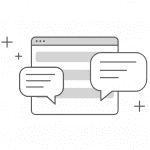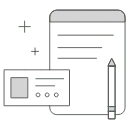What is an Atrial Septal Defect?
To understand Atrial Septal Defect (ASD), we need to know how a normal heart functions. The heart is divided into four chambers, two on the right and two on the left. The heart uses its left and right sides, to pump blood throughout the body. The right side of the heart moves blood to the lungs. The blood picks up oxygen in the lungs and then returns it to the heart’s left side. The left side of the heart then pumps the blood through the aorta and then it goes to the rest of the body.
A hole in the atrial septum is called an atrial septal defect. The atrial septum is a wall between the upper two chambers of the heart, the right and left atria. An atrial septal defect is a congenital heart defect which means it is present since the birth of the child. Studies show that girls are twice as likely to have an atrial septal defect as boys.
A small hole in the atrial septum might never cause any problems and it often closes on its own during infancy or early childhood. Kids who have a small hole in the heart will not require restrictions on physical activity. However, a large hole in the atrial septum can cause extra blood to overfill the lungs resulting in the right side of the heart working more than usual. If untreated, the right side of the heart eventually enlarges and weakens. The blood pressure in the child’s lungs can also increase, and lead to pulmonary hypertension. The increased blood flow to the lungs creates a swishing sound that is known as a heart murmur. These heart murmurs, along with other specific heart sounds that can be detected by a cardiologist are clues that a child has ASD.
A long-standing atrial septal defect can damage your heart and lungs. Surgery or device closure may be necessary to repair the defect to prevent complications. The holes can be located in different places on the atrial septum, and they can be of different sizes. The symptoms and medical treatment of the defect depend on those factors. In rare cases, ASDs are part of complex types of congenital heart disease.
What are the Types of Atrial Septal Defects?
There are four major types of atrial septal defects and each is classified by its location in the heart and the development of the defect:
- Secundum atrial septal defects are an opening that occurs in the centre of the wall between the atria (atrial septum). These are the most common types of defects and they occur when a part of the atrial septum does not close when the heart is developing.
- Primum atrial septal defects occur in the lower part of the atrial septum which is close to the tricuspid and mitral valves.
- Sinus venosus atrial septal defects occur in the upper part of the atrial septum near the veins that drain into the right atrium that result in abnormal drainage of one or more of the pulmonary veins.
- Coronary sinus atrial septal defects occur when there is a hole in the wall between the coronary sinus and the left atrium. This is the rarest type of atrial septal defect that affects the blood flow from the heart’s vein.
What Causes an Atrial Septal Defect?
Atrial septal defects occur during fetal development of the heart and are present at birth. During the first 8 weeks after conception, the heart develops. If a problem occurs during this process, it may result in a hole in the atrial septum.
In some cases, the tendency to develop ASD may be genetic. Genetic syndromes will cause extra or missing pieces of chromosomes that can be associated with ASD.
What are the Atrial Septal Defect Symptoms?
Many babies born with atrial septal defects have no signs or symptoms but they can begin in adulthood. The Atrial septal defect signs and symptoms can include the following:
- Poor appetite
- Poor growth
- Fatigue
- Shortness of breath
- Lung problems and infections, such as pneumonia
- Swelling of legs, feet or abdomen
- Heart palpitations or skipped beats
- Stroke
- A heart murmur is a whooshing sound that can be heard through a stethoscope
Want more clarification about medical expense & treatment plan?
Plan Your Atrial Septal Defect surgery In India
Get a Free Doctor's OpinionWhatapp UsWhat are the Risk Factors of Atrial Septal Defect?
The cause of atrial septal defects is not known, but some congenital heart defects appear to run in families and sometimes occur with other genetic problems, such as Down syndrome. If you have a heart defect or your has a child heart defect, a genetic counsellor can estimate the odds that future children will have one. Some conditions that you have during pregnancy can increase the risk of your baby having a heart defect, these are:
- Rubella infection – Becoming infected with rubella (German measles) during the first few months of your pregnancy will increase the risk of fetal heart defects.
- Drug, tobacco and alcohol use, or exposure to certain substances – Use of certain medications, tobacco, alcohol or drugs, such as cocaine, during pregnancy will harm the developing fetus.
- Diabetes or lupus – Having diabetes or lupus might increase the risk of your child of having a heart defect.
What are the Complications of the Atrial Septal Defect (ASD)?
If the child has a large hole in the atrial septum it can cause serious problems such as:
- Right-sided heart failure
- Heart rhythm abnormalities (arrhythmia)
- Increased risk of a stroke
- Shortened life span
Some rare but serious complications are:
- Pulmonary hypertension – If a large atrial septal defect goes untreated then blood flow to your lungs increases and the blood pressure in the lung arteries also increases.
- Eisenmenger syndrome – Pulmonary hypertension will cause permanent lung damage. This complication, called Eisenmenger syndrome, usually develops over many years and occurs rarely in people with large atrial septal defects. Doctors strongly advise women with Eisenmenger syndrome not to become pregnant because it endangers their lives.
How is Atrial Septal Defect (ASD) Diagnosed?
If a doctor hears a murmur in the heart and suspects a heart defect, the child may be referred to a pediatric cardiologist who specializes in diagnosing and treating childhood heart conditions. In case an ASD is suspected, the cardiologist might take one or more of the following tests:
- Chest X-ray
- Electrocardiogram (EKG): It records the electrical activity of the heart and can indicate volume overload of the right side of the heart.
- Echocardiogram (Echo): It uses sound waves to produce a picture of the heart and to visualize blood flow through the heart chambers. This is often used to diagnose ASD.
- Cardiac catheterization: It is a test that uses a thin, flexible tube called a catheter inserted near the heart. Contrast dye is used during cardiac catheterization to get even clearer pictures. In some children, this procedure could be used to close the atrial septal defect.
What are the Treatment Options for Atrial Septal Defect?
Treatment will depend on your child’s age and the size, location, and severity of the defect. Once an atrial septal defect is diagnosed, your child’s cardiologist checks to see if the defect is closing on its own. A Secundum atrial septal defect is the most common type of atrial septal defect that often closes on its own as your child grows. But larger ASDs usually won’t close and must be treated medically. Most of these can be closed in a cardiac catheterization lab but some will require open-heart surgery. Treatment of ASD may include:
Medicine
Many children have no symptoms and do not require medicine. But medicine helps some children’s hearts to work better. For example, diuretics (water pills) help the kidneys to get rid of extra fluid from the body, which could occur when the heart is not functioning properly.
ASD Surgery
If surgical repair for ASD is necessary, a child will undergo open-heart surgery. This surgery is done if the ASD does not close by the time a child starts school or if the hole in the heart is large. The surgery is done under general anesthesia and the hole in the heart will be closed with stitches or a special patch. After the surgery, your child’s doctor may prescribe antibiotics to prevent bacterial endocarditis, an infection of the lining of the heart. Eventually, the tissue of the heart heals over the patch or stitches, and within 6 months after the surgery, the hole will be completely covered with tissue.
Device Closure
During cardiac catheterization, a special device called a septal occlude is inserted into the atrial septal defect. The septal occlude device stops blood from flowing through the hole in the heart. This non-surgical technique for closing an ASD will eliminate the scar on the chest needed for the surgical approach, and has a shorter recovery time which is usually an overnight stay in the hospital. There will be a small risk of blood clots forming on the closure device while new tissue heals over it, so kids who have their ASD closed with device implantation are prescribed a low dosage of aspirin for 6 months after the procedure.
Cardiac Catheterization
Depending on the defect’s position, many can be corrected by cardiac catheterization. In this procedure, a catheter which is a thin, flexible tube is inserted into a blood vessel in the leg, leading to the heart. A cardiologist guides the tube into the heart to make measurements of the blood flow, pressure, and oxygen levels in the heart chambers. A special implant is positioned in the hole in the septum and will flatten against the septum on both sides to close and permanently seal the ASD.
Antibiotics will be recommended for 6 months following the catheterization or surgical closure of an ASD, before surgical procedures like routine dental work to prevent an infection of the inner surface of the heart. Once the heart tissue has healed over the closed ASD, most patients no longer need to worry about having a higher risk of infection of the inner surface of the heart which is otherwise called infective endocarditis. Your doctor will discuss the other possible risks and complications before the procedure.
Outcome and Recovery of Atrial Septal Defect
Kids who undergo cardiac catheterization to close an ASD will spend the night in the hospital after the procedure and should be kept out of the gym class or sports practice for a week. After that, they can usually return to their normal physical activities, with their doctor’s approval.
Children who have surgery for their ASDs can go home after a few days if there are no complications. The main concern is the healing of the chest incision after the surgical ASD repair. Weeks after the surgery or cardiac catheterization, your doctor will check on your child’s progress. Your child may have to undergo another echocardiogram to make sure that the heart defect has closed completely. Children who have undergone ASD repair will continue to have follow-up visits with the cardiologist. Most kids recover from the treatment quickly within a few weeks, your child is eating more and is more active than before surgery. Most kids who have had an ASD corrected may have a normal life expectancy and will go on to live healthy and active lives.
However, some signs and symptoms could indicate a problem. The child will be watched closely for signs or symptoms that could indicate a problem. If your child has trouble breathing or is not eating or has a fever, or redness or pus oozing from the incision, then get medical treatment right away. In most cases, kids who have had ASD surgery recover quickly without problems. The other symptoms that can indicate a problem include the following:
- A bluish tinge or color (cyanosis) on the skin around the mouth or the lips and tongue
- Poor appetite or difficulty feeding
- Failure to gain weight or weight loss
- Listlessness or decreased activity level
- Prolonged or unexplained fever
- Increasing pain or pus oozing from the incision
Inform your doctor if your child has any of these signs after the closure of the ASD.
Living with Atrial Septal Defects
All children with an atrial septal defect should be cared for by a pediatric cardiologist. Most children who had an atrial septal defect that was surgically repaired or closed using a septal occlude device will live healthy lives. With early diagnosis and repair of an atrial septal defect, children usually do well and do not require further follow-up care.
If an atrial septal defect is diagnosed later in life or never repaired, children are more likely to have complications after the hole is closed. Large atrial septal defects would cause lung problems over time if not treated. This is because the extra blood passing through the defect and then into the lungs could harm the vessels in the lungs.
ASD Surgery at Treatment Possible:
Treatment Possible is associated with the Best Cardiac Surgeon for ASD surgery in India who are experienced in operating complex cases and ensure the highest success rate. We only work with Top 10 hospital for Atrial Septal Defect Surgery in India that are equipped with OT that are compatible with complex Cardiac Surgeries.
Our understanding of the Indian Healthcare market and our valued relation with best hospitals for ASD surgery in India enables us to maintain the cost that are reasonable, affordable and transparent. The Atrial Septal Defect surgery cost in India through Treatment Possible can be 10-20% lower than similar companies in India and 50-60% cheaper than in other countries.
You can also send your medical reports for ASD surgery to care@treatmentpossible.com for free opinions and suggestions from The Best Cardiac Surgeon in India with the hassle-free setup of post-operative recovery care, medical travel & stay during the Medical treatment. No matter what the health condition, you always get good healthcare options and cost advantage from Treatment Possible.
Our Services
From Treatment To Recovery, We Are Always There With You!

Medical Visa Letter
We provide a Medical visa letter for which we require the scanned passport copies of the patient and attendant.

Arrange An Appointment With A Surgeon
We arrange for the appointment with the surgeon, confirm for the hospital room and operation theatre (if required)

Post Surgery Follow Up
We help you to fix your telephonic appointment for future follow-ups

Complimentary Pickup
We arrange for complimentary pickup and drop services from the airport.

All The Necessary Arrangements
We arrange for hospital admission, forex exchange, sim card and local assistance

No Need To Worry About Essential Expenses!
We help in sorting out the hospital bill, return ticket, medicines and other essential purchases.
